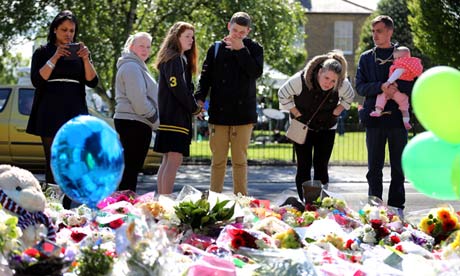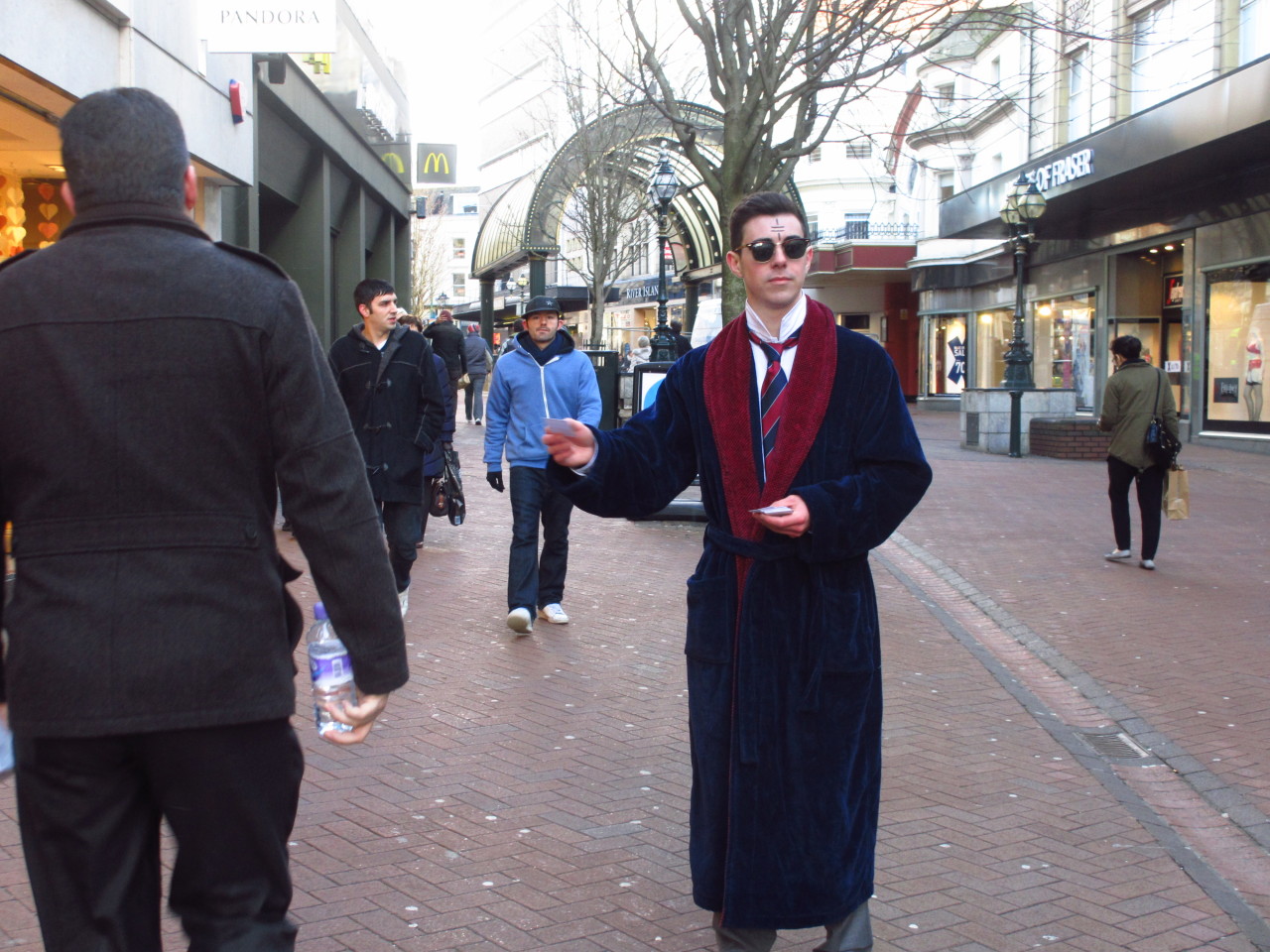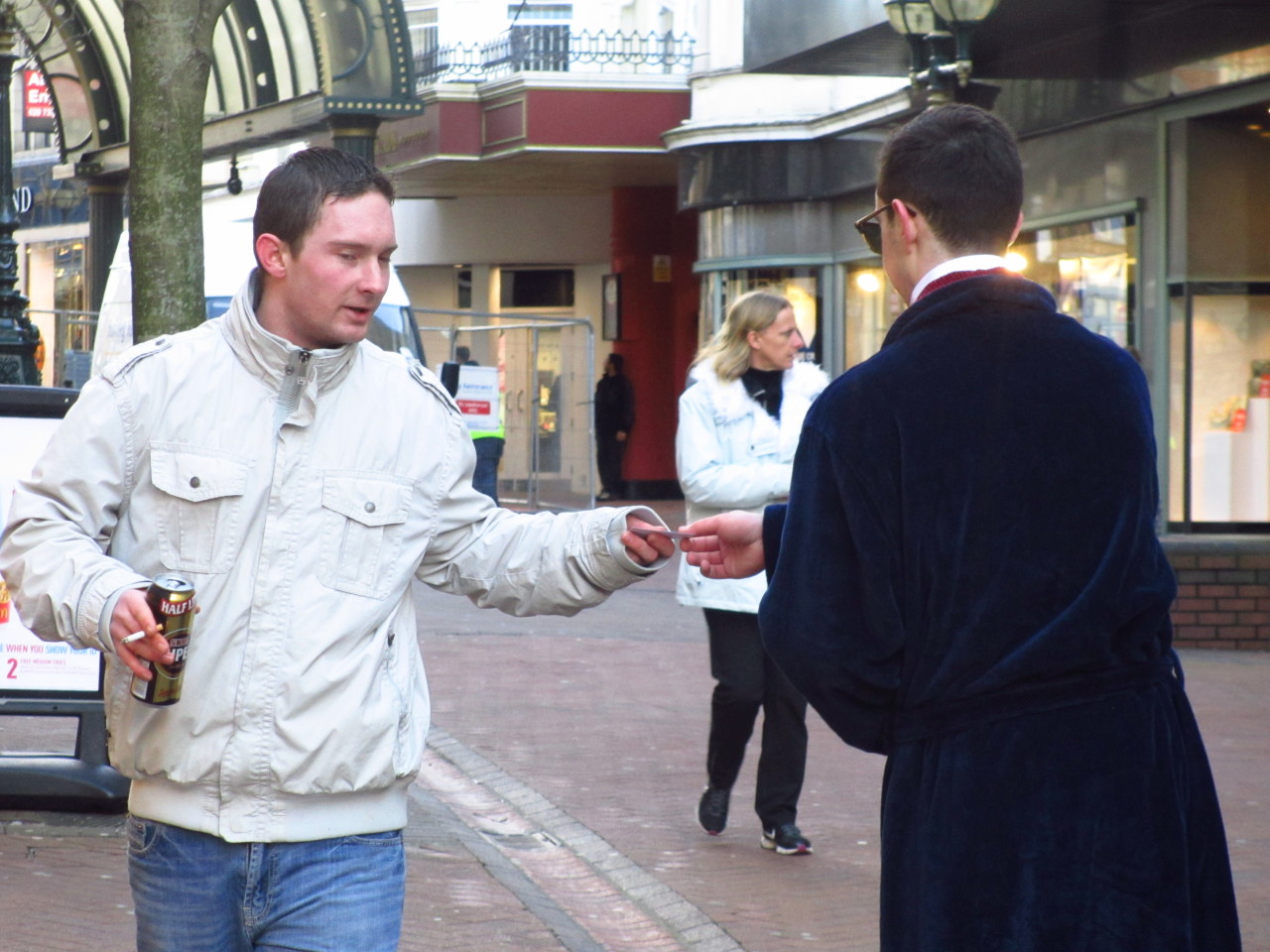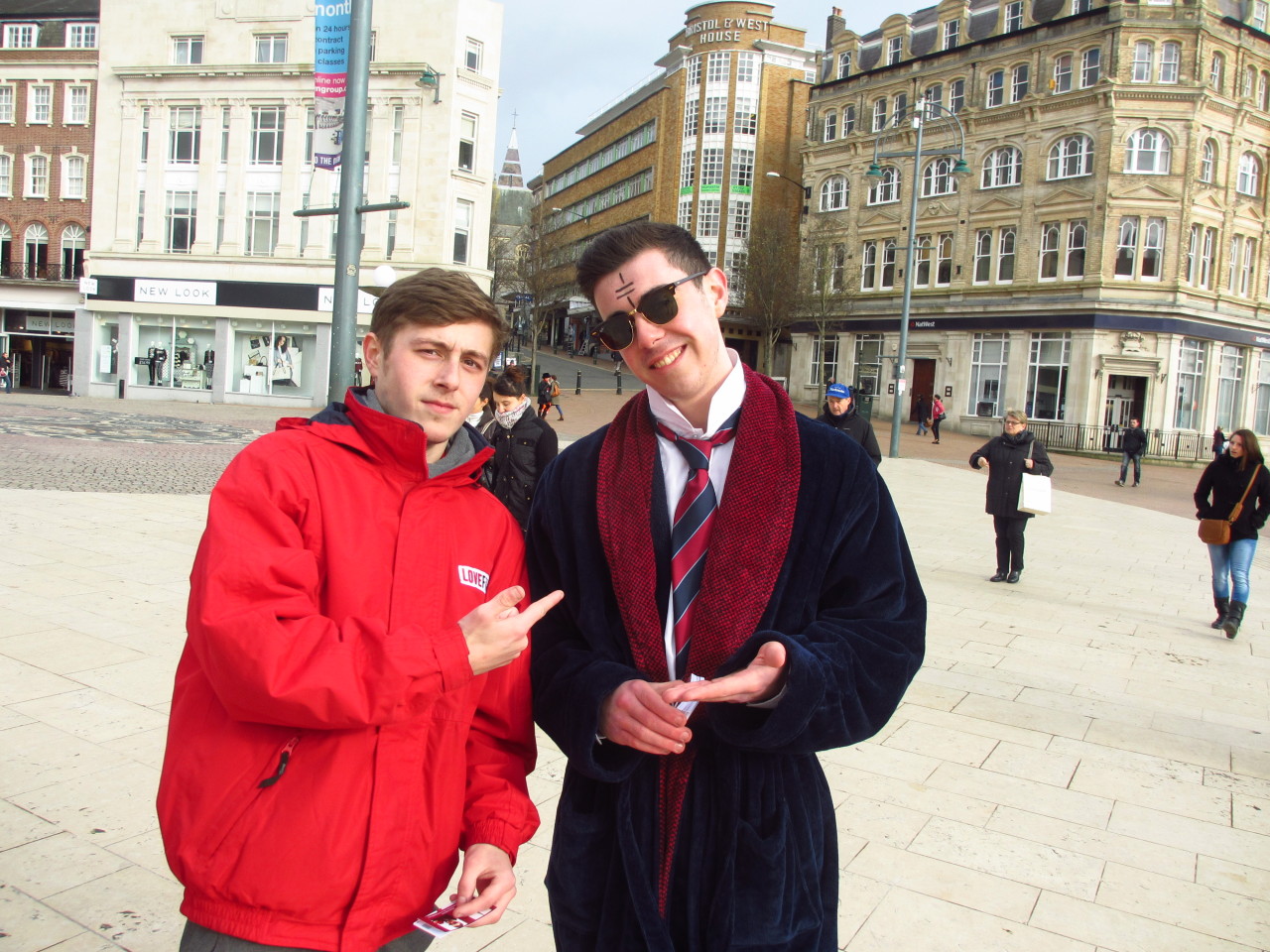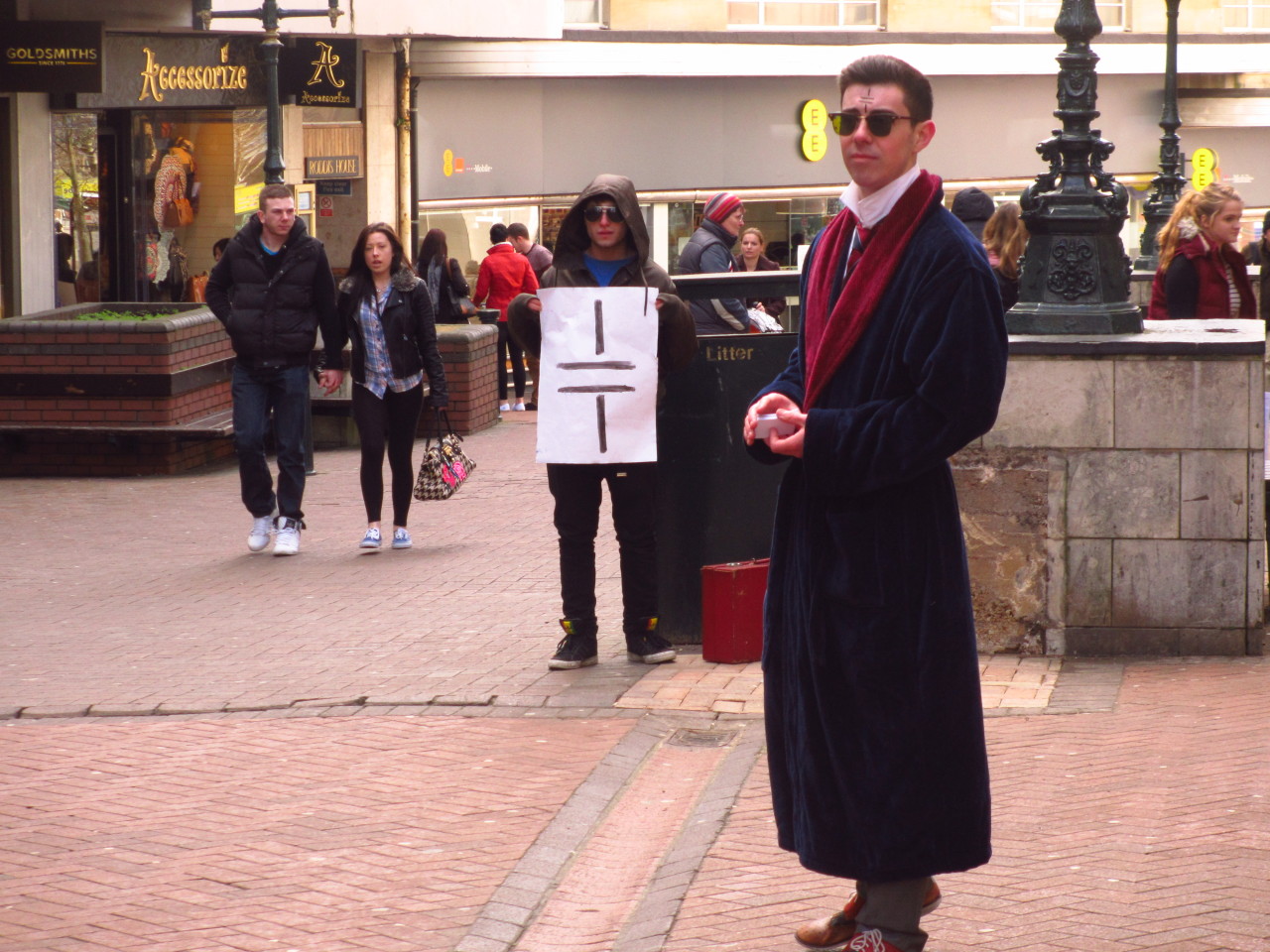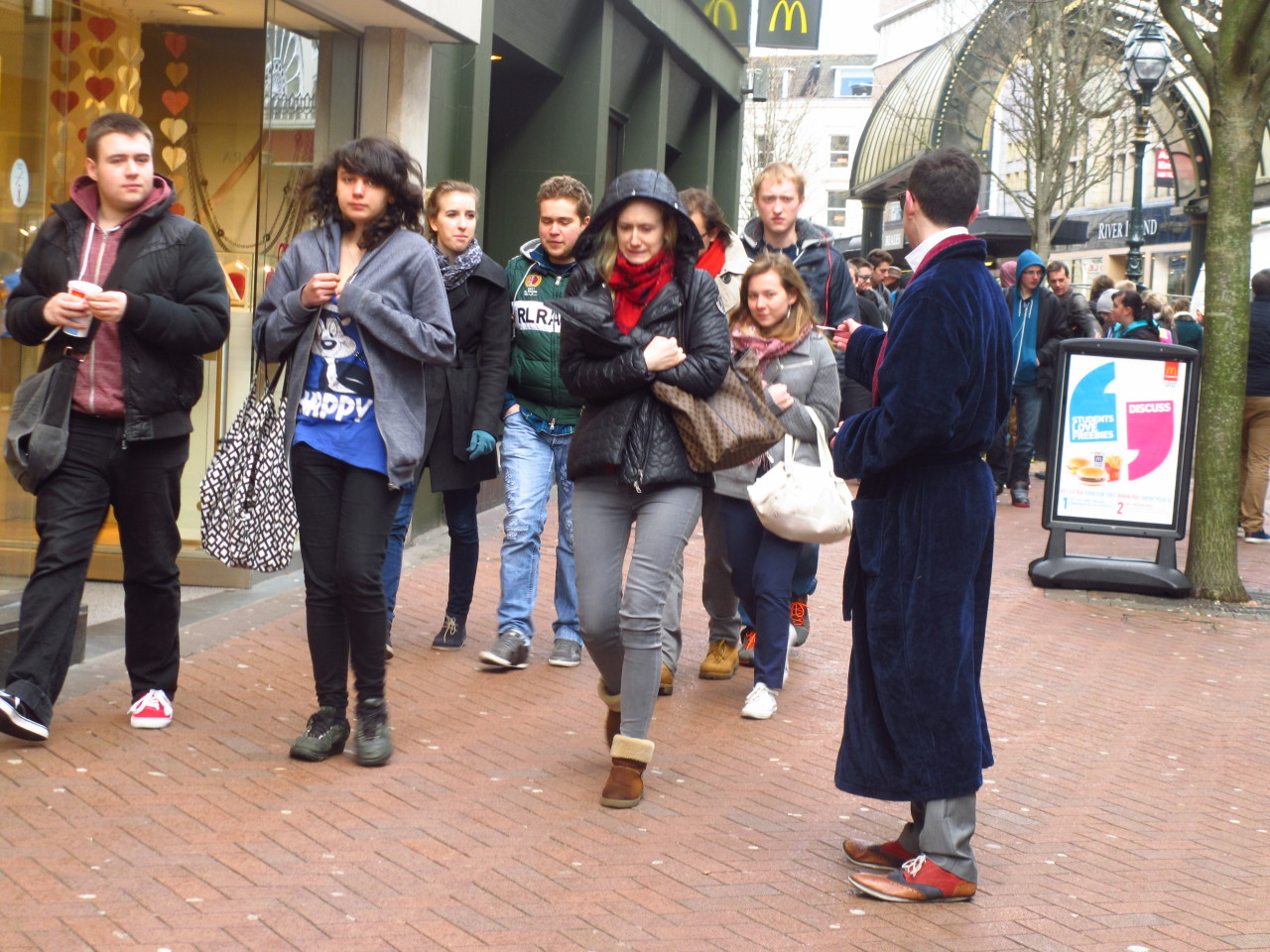It is through a flawed British educational system that we lack a crucial understanding of not only the Islamic faith, but different religions, beliefs and opinions
I had a job interview yesterday at the Royal Festival Hall - (Yes I did finally get a job - Thank you for asking), but on my way there I encountered a very unfortunate scene. Sitting on a bench, enjoying the bank holiday sunshine, were what I presumed to be a Muslim family because of their Islamic clothing. A middle-aged woman came up to my face and screamed "You F****** Muslim Scum! Get The F*** Outta My Country! Killing Innocent British Men! You F****** Animals!" At first I thought she was talking to me, due to the fact that I was now drenched in her smokey-spit. I quickly established she was addressing the Muslim family opposite me. I stupidly said "Sorry, got in your way there!" and embarrassingly skipped on by as if to pardon my rude interruption of her polite racist confrontation. After attending my interview I realised what I had previously witnessed and began to become more aware of the rising tensions between many people in Britain opposing the Islamic faith. I was very much aware of this before the Woolwich attack, however that immediate experience made me far more conscious of the fact.
I have always tried to avoid religious issues and topics, 1 - because I know very little about different belief systems, 2 - I never thought it concerned me and 3 - It just all seems so bloody complicated. Without going in to too much detail I am agnostic; baptised Catholic at birth - 'DAMN YOU MOTHER!' (kneeling, fist wavering in the air, screaming to the heavens) - I believe in equality and justice, but overall I am a self-confessed confused mess. Earlier this year I completed an art project, which entailed the creation of my own religion (Requilibrium), which you can go and check out for yourself in my previous blog posts. Throughout the project I explored my own opinions and beliefs in conjunction with other religions and individuals. I also sought to highlight the ignorance and arrogance they cause and the conflicts they create among opposing beliefs. One vital point I concluded from the public response to my project was that we all need to educate and familarise ourselves more with different beliefs if we wish to give a valid opinion of them. We must realise that all beliefs may differ but are all connected by one true fact: that they are all ultimately flawed.
When the Woolwich attack went viral, a swarm of opinions exploded throughout the public and on social media websites. Many people used this attack as a basis for there own angered resentment of Muslims; due to the immediacy of the web, social media becomes a very dangerous tool. Some jumped to the conclusion that because these men claimed to be Muslims who followed the Islamic faith and teachings of the Quran, that the root cause of the problem was down to the entire Islamic faith. Que the BNP and EDL who used the attack as a corrupt catalyst of support for their own parties beliefs.
I have not read the Quran, maybe I should, but I haven't. Therefore I have a very limited knowledge of what the Islamic faith is about and I do not wish to comment on the validity of Muslim beliefs and take a religious or philosophical approach to the debate. If I were to ask people who responded to the Woolwich attack by condemning Muslims, whether they had read the Quran, I am guessing the majority of them would say that they hadn't.
I have not read the Quran, maybe I should, but I haven't. Therefore I have a very limited knowledge of what the Islamic faith is about and I do not wish to comment on the validity of Muslim beliefs and take a religious or philosophical approach to the debate. If I were to ask people who responded to the Woolwich attack by condemning Muslims, whether they had read the Quran, I am guessing the majority of them would say that they hadn't.
I can understand people wanting to get there voice heard and gain a sense of social power, but what I realise is that people must be educated to acknowledge the power of their opinions and the affect these have on others. My experience of education in Britain felt very limited, restrictive and repressive; it doesn't seem to be getting any better due to Michael Gove (AKA: TWAT) and his Conservative lassiez-faire approach to education i.e. what ever he thinks is best. In Religious Studies I remember being taught to explore moral and ethical issues only from a Christian or Catholic point of View. R.S was only taught to me maybe twice or even once a week when I was doing my GCSEs. I never remember focusing directly on the beliefs of different religions and the reasons for their rituals; if I was it was only in a cringeworthy ancient politically-correct textbook.
I have always had a life-long passion for art. The main reason it appealed to me was because it was different to all the other subjects I took at school. I thought, here was a way of learning which really excited me; those mundane textbook and written exercises bored me to death because of how repetitive they were. I could never really articulate myself and say what I truly wanted through speech or on a piece of paper. But when a visual image was in front of me I could understand it on a level I couldn't with English and Maths or through reading and writing. It was through discussion and debate; physically and visually engaged in something that I thrived in discovering and learning. I'm not saying that all the reading and writing didn't help or wasn't necessary, but there needs to be an even mixture of different types of education. I did a test late last year to see what sought of learner I was, being told that I was a 'Multi-Sensory Learner' . I thought to myself, 'surely we're all multi-sensory learners, aren't we?'
The British Educational system is flawed and it's one of the main reasons there is a mainstream ignorant base of opinions which people feel comfortable to follow. Everyone is entitled to there own opinion, however, people must be aware of the various complex issues surrounding a subject which they wish to engage in a debate about. This is where education is crucial. If we want to live in a democracy with equal rights and follow laws of justice we must be educated to become more tolerant of each others beliefs. One way of doing this is creating a good understanding of different opinions and beliefs. It's ridiculous to say that we live in a harmonious multi-faith society when there are visible cracks between different ethnicities around the UK. Yes, Britain is a place that is full of culture and a diversity of people, but let's not fool ourselves into thinking that we fully embrace this the way we should.
My proposal is that we begin to change the way we are educated about different beliefs, opinions and people. Whilst being taught the fundamentals of being tolerant towards others, people need to actually experience it for themselves. This is when an artistic way of learning can make a significant difference in people's attitudes towards others. Outside of schools, different areas and neighbourhoods should be brought together through local meetings and discuss their differences. People are afraid of opening themselves up to others because they feel vulnerable, hence why this current voluntary approach to getting to know people with different ethnicities simply is not working. It should be compulsory for children in schools, people in work and families in neighbourhoods to come together and learn more about eachother and their cultures. But the government simply do not see this as a priority, and perhaps you don't either because apparently our focus should maintain on the economic crisis and creating more jobs. I understand the importance of this, but do not use it as an excuse to dismiss the importance of foundations of a democracy and multi-faith society. It's not as if it would require financial attention either. We should implement simple compulsory schemes and activities, which help people of all different backgrounds come together and talk.
There is an argument that muslims are citizens who do not wish to fully integrate themselves into society; even if you do hold this opinion sometimes it comes down to the will power of an individual to help ease a shy stranger into a conversation and help them engage with others. My mother came to England when she was 18 from Ireland; she tells me how difficult it would have been to make new friends and become more socially active if she wasn't accompanied by two of her sisters. Ultimatley, if the government won't do anything about the problem of rising ignorant racist opinions and generalisations about other ethnicities (which you can bet on will be the case) then the decisive action needs to be made by you: the individual. So don't be afraid to go to the Muslim family next-door and ask them around for dinner; ask the silent Polish colleague in the office if he wants to go for lunch with you, or invite the shy Chinese girl in your class to a party on the weekend.
http://www.guardian.co.uk/commentisfree/2013/may/23/woolwich-attack-terrorism-blowback
http://www.breitbart.com/Big-Hollywood/2013/05/27/Brand-blame-Woolwich-madness - (Russell Brand always has something good to say about these sort of religious issues - I honestly think he might just be the reincarnation of Jesus; only slightly funnier than the original)
I have always had a life-long passion for art. The main reason it appealed to me was because it was different to all the other subjects I took at school. I thought, here was a way of learning which really excited me; those mundane textbook and written exercises bored me to death because of how repetitive they were. I could never really articulate myself and say what I truly wanted through speech or on a piece of paper. But when a visual image was in front of me I could understand it on a level I couldn't with English and Maths or through reading and writing. It was through discussion and debate; physically and visually engaged in something that I thrived in discovering and learning. I'm not saying that all the reading and writing didn't help or wasn't necessary, but there needs to be an even mixture of different types of education. I did a test late last year to see what sought of learner I was, being told that I was a 'Multi-Sensory Learner' . I thought to myself, 'surely we're all multi-sensory learners, aren't we?'
The British Educational system is flawed and it's one of the main reasons there is a mainstream ignorant base of opinions which people feel comfortable to follow. Everyone is entitled to there own opinion, however, people must be aware of the various complex issues surrounding a subject which they wish to engage in a debate about. This is where education is crucial. If we want to live in a democracy with equal rights and follow laws of justice we must be educated to become more tolerant of each others beliefs. One way of doing this is creating a good understanding of different opinions and beliefs. It's ridiculous to say that we live in a harmonious multi-faith society when there are visible cracks between different ethnicities around the UK. Yes, Britain is a place that is full of culture and a diversity of people, but let's not fool ourselves into thinking that we fully embrace this the way we should.
My proposal is that we begin to change the way we are educated about different beliefs, opinions and people. Whilst being taught the fundamentals of being tolerant towards others, people need to actually experience it for themselves. This is when an artistic way of learning can make a significant difference in people's attitudes towards others. Outside of schools, different areas and neighbourhoods should be brought together through local meetings and discuss their differences. People are afraid of opening themselves up to others because they feel vulnerable, hence why this current voluntary approach to getting to know people with different ethnicities simply is not working. It should be compulsory for children in schools, people in work and families in neighbourhoods to come together and learn more about eachother and their cultures. But the government simply do not see this as a priority, and perhaps you don't either because apparently our focus should maintain on the economic crisis and creating more jobs. I understand the importance of this, but do not use it as an excuse to dismiss the importance of foundations of a democracy and multi-faith society. It's not as if it would require financial attention either. We should implement simple compulsory schemes and activities, which help people of all different backgrounds come together and talk.
There is an argument that muslims are citizens who do not wish to fully integrate themselves into society; even if you do hold this opinion sometimes it comes down to the will power of an individual to help ease a shy stranger into a conversation and help them engage with others. My mother came to England when she was 18 from Ireland; she tells me how difficult it would have been to make new friends and become more socially active if she wasn't accompanied by two of her sisters. Ultimatley, if the government won't do anything about the problem of rising ignorant racist opinions and generalisations about other ethnicities (which you can bet on will be the case) then the decisive action needs to be made by you: the individual. So don't be afraid to go to the Muslim family next-door and ask them around for dinner; ask the silent Polish colleague in the office if he wants to go for lunch with you, or invite the shy Chinese girl in your class to a party on the weekend.
http://www.guardian.co.uk/commentisfree/2013/may/23/woolwich-attack-terrorism-blowback
http://www.breitbart.com/Big-Hollywood/2013/05/27/Brand-blame-Woolwich-madness - (Russell Brand always has something good to say about these sort of religious issues - I honestly think he might just be the reincarnation of Jesus; only slightly funnier than the original)
